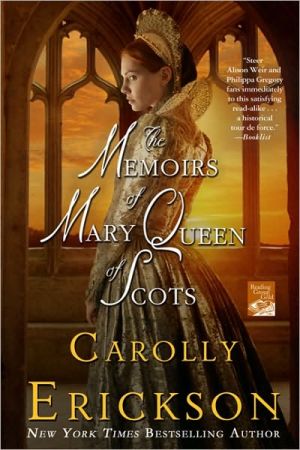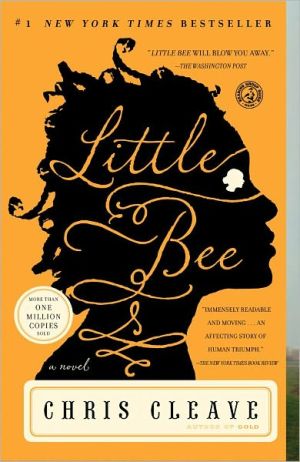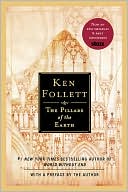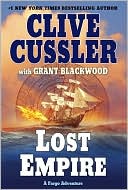The Memoirs of Mary Queen of Scots
"Born Queen of Scotland, married as a young girl to the invalid young King of France, Mary took the reins of the unruly kingdom of Scotland as a young widow and fought to keep her throne. A second marriage to her handsome but dissolute cousin Lord Darnley ended in murder and scandal, while a third marriage to the dashing, commanding Lord Bothwell, the love of her life, gave her joy but widened the scandal and surrounded her with enduring ill repute." "Unable to rise above the violence and...
Search in google:
Queen of Scotland at six days of age, married as a young girl to the invalid young king of France, Mary took the reins of the unruly kingdom of Scotland as a young widow and fought to keep her throne. A second marriage to her handsome but dissolute cousin Lord Darnley ended in murder and scandal, while a third to the dashing Lord Bothwell, the love of her life, gave her joy but widened the scandal and surrounded her with enduring ill repute. Unable to rise above the violence and disorder that swirled around her, Mary escaped to England—only to find herself a prisoner of her ruthless, merciless cousin Queen Elizabeth. Here, in a riveting first-person account, is the enchanting woman whose name still evokes excitement and compassion—and whose death under the headsman’s axe still draws forth our sorrow.Publishers WeeklyErickson (The Tsarina's Daughter) focuses on the life of Mary Stuart, queen of Scots, in this lackluster historical. Feared as a contender for the English throne, Mary lived much of her life in captivity. Erickson retraces Mary's entire life, from her youthful marriage to a French king to her secret relationship with James Hepburn, the earl of Bothwell, and finally her 1587 execution at age 44 for treason, ordered by her cousin, Queen Elizabeth. Throughout, Mary lives under the shadow of a prophecy, dooming her to a tragic end. Though she lived in tumultuous times, Mary's story—fraught as it is with long periods of confinement—is not particularly exciting. Nor does she make for a compelling heroine, seeming content to wait on the sidelines and let others act for her. Queen Elizabeth's brief appearances enliven the story a bit, but not enough to save it. Readers desperate for Tudor-Stuart intrigue may find this palatable but not enthralling. (Sept.)
The Memoirs of Mary Queen of Scots\ A Novel \ \ By Erickson, Carolly \ St. Martin's Griffin\ Copyright © 2010 Erickson, Carolly\ All right reserved.\ ISBN: 9780312652739 \ \ \ One\ THE trumpets sounded a brilliant fanfare, the shrill high notes soon lost in the bright April air, and the jousts began.\ It was my wedding day, I was fifteen years old and quite content to be marrying the dauphin Francis, the boy prince I had known since we were both very small children. The elaborate, lengthy wedding mass at last over, the jousting to celebrate it was about to begin. Francis and I sat together under the roof of the wooden spectators’ pavilion overlooking the tiltyard, watching as the armored jousters rode in one by one, the crowd cheering and clapping for each.\ Francis and I stood, and clapped with the others, but I stooped a little, for I was so much taller than my new husband that it was embarrassing. I was much admired in my lace-trimmed gown of ivory silk, my long reddish hair coiled like a crown on top of my head, my throat wreathed in diamonds, a long rope of large pearls dangling from my belt to the hem of my gown. My new father-in-law King Henry called me his "petite reinette," his little queen, and said that I was the loveliest child he had ever seen. Only I was no longer a child, I was far too tall for that, and growing taller every day. While my new husband Francis, poor boy, was pathetically stunted in his growth, quite the runt of his parents’ royal litter.\ The cheering grew louder as King Henry rode into view, magnificent in his gleaming armor of chased silver, his metal helmet with its tall waving white plume, his long lance pointed upward.\ I looked over at Francis, and saw that his small face was pale, slightly greenish. He appeared bilious. Knowing him as well as I did, I was aware that uncomfortable situations always made him nauseous. He was very uncomfortable now, aware that those seated near us were nudging each other and tittering, murmuring to one another that he was a coward.\ The king had announced that Francis would join in the jousting, but at the last minute Francis had become frightened and fled to the spectators’ pavilion, humiliated and miserable. I felt sure that he knew, better than anyone, how futile it would be for him to take the field against the older, stronger competitors, how he would have difficulty couching the heavy lance, aiming at his opponent’s helmet (he was squeamish about hurting anyone or any thing), how if struck himself he would fall heavily from the horse and might well be trampled.\ "Fight, boy, fight!" his father was always shouting at him. "How can you be a king if you can’t even be a man?"\ But he couldn’t help his size, or the fact that he was cursed with a slight, weak body or that he was a poor athlete quick to tremble and run when chased by an opponent. I felt protective toward him—I was two years older after all—and had always defended him, ever since we were children together. I was still defending him on our wedding day, glaring at those around us who were smirking and making insulting comments and wishing, as we stood up there in the pavilion, that I had worn slippers rather than shoes so that the difference in our heights would not be so obvious.\ With a thunder of hooves the king rode down the length of the narrow tiltyard, making us all gasp in admiration. He took up his position at the far end, away from us. We could see his splendid mount tossing its head and skittering and shying nervously, waiting for his full speed and power to be unleashed. The challenger now rode toward the near end of the long corridor of combat, his armor too shining in the sunlight and his charger strong and full of spirit and power.\ King and challenger faced one another, the grooms who had been holding the horses loosing their hold and scurrying away. Drums rolled. Another fanfare sounded. Then, as Francis reached for my hand and we both held our breath, the jousters rode at breakneck speed toward one another, lances lowered and pointed at one another’s heads.\ There was a sickening thwack as the king’s lance struck the challenger’s visor, shattering into a dozen pieces, and the hapless challenger fell over sideways off his horse.\ Grooms rushed to the armor-clad figure lying prone and tried to revive him. When they failed, he was dragged off out of sight and the earth was quickly raked to evenness where he had lain. It all happened so fast that I could almost believe I had imagined it—except for the red stain in the brown earth, and the deep tracks leading off toward the stables.\ I looked at Francis, and saw that his pallor had increased. He looked ill. Was he about to throw up?\ I reached for my handkerchief. If the worst happens, I thought, I will cover his mouth with my handkerchief. Maybe only those in the very front of the crowd will notice.\ At that moment I heard my new mother-in-law’s low, syrupy voice.\ "If you spew," she said in Francis’s ear, leaning down from where she sat behind us, "I swear I’ll turn your head into a boiled cabbage."\ At this Francis seemed to straighten up a little.\ "Courage!" I whispered to him. "Only five challengers more."\ "Leave me be!" he said sharply, both to his mother and to me. I felt relieved. He was irritated. His irritation would preoccupy him, I felt sure, and would prevent him from disgracing himself by being sick.\ My mother-in-law the queen, Catherine de Medicis, now leaned over me.\ "That’s the way, little reinette," she said with a smile. Her round, jowly face had the heaviness, her leathery, pockmarked cheeks the roughness of a peasant woman in the marketplace. Her small dark eyes were shrewd. "Encourage him! He will need all his courage tonight."\ I knew very well what she meant. It was widely rumored that my husband was impotent. There were no pregnant serving girls claiming to be carrying his baby, as was often the case (so I was told) with princes. Francis was timid with everyone, even the serving girls, and seemed to shrink from the grown men and women around him.\ I heard another voice, a much more welcome one, and turned to see that my grandmother Antoinette de Guise was coming to sit beside the queen, shooing away one of the latter’s attendants with a wave of one beringed hand and settling her ample self on the cushioned bench.\ "I doubt that the prince will accomplish much in the bedroom tonight," she remarked.\ "Hush, grandmamma! There is already too much talk of these very personal matters!" I knew I sounded prim, and regretted it, but the truth was, I shared my grandmother’s views. Yet I wanted to be loyal to Francis.\ "I pray that we will be worthy to bring sons into the world for the honor of Scotland and France," I said stoutly, at which Grandmamma Antoinette lifted her fan to her mouth and made a sound that was somewhere between a sneeze and a snort.\ "We must all pray for that," Queen Catherine added immediately, and when I turned to look at her I saw a gleam—was it a gleam of avarice?—in her small eyes. It was the same gleam I had seen on the morning I signed my marriage treaties several days earlier. On that morning, after Francis and I had signed our names on the documents prepared by the court lawyers, the queen had drawn me aside. She had shown me other documents, secret ones, which my mother had prepared without telling me. What these documents said was that, if Francis and I had no children, Scotland would belong to France.\ Young as I was, I understood quite well what was at stake in our marriage. Francis and I had to have a son, if possible several sons. It was vital. Scotland’s future was at risk. I did not doubt that I was strong and vigorous enough to become a mother. But could he become a father? My household physician, Dr. Bourgoing, thought so, and I trusted his opinion.\ How I wished, at that moment, that\ \ Continues...\ \ \ \ Excerpted from The Memoirs of Mary Queen of Scots by Erickson, Carolly Copyright © 2010 by Erickson, Carolly. Excerpted by permission.\ All rights reserved. No part of this excerpt may be reproduced or reprinted without permission in writing from the publisher.\ Excerpts are provided by Dial-A-Book Inc. solely for the personal use of visitors to this web site. \ \
\ Publishers WeeklyErickson (The Tsarina's Daughter) focuses on the life of Mary Stuart, queen of Scots, in this lackluster historical. Feared as a contender for the English throne, Mary lived much of her life in captivity. Erickson retraces Mary's entire life, from her youthful marriage to a French king to her secret relationship with James Hepburn, the earl of Bothwell, and finally her 1587 execution at age 44 for treason, ordered by her cousin, Queen Elizabeth. Throughout, Mary lives under the shadow of a prophecy, dooming her to a tragic end. Though she lived in tumultuous times, Mary's story—fraught as it is with long periods of confinement—is not particularly exciting. Nor does she make for a compelling heroine, seeming content to wait on the sidelines and let others act for her. Queen Elizabeth's brief appearances enliven the story a bit, but not enough to save it. Readers desperate for Tudor-Stuart intrigue may find this palatable but not enthralling. (Sept.)\ \ \ \ \ Library JournalIn her latest "historical entertainment," Erickson (The Tsarina's Daughter) blends fact with fancy as she unravels the life story and tragic end of Mary, Queen of Scots. As an infant, Mary inherits the Scottish crown; at age 15 she marries Francis, the sickly dauphin of France. When Francis dies, Mary fears treachery at the hands of her mother-in-law, Catherine de Medici, and flees to her homeland, but the largely Protestant Scots are suspicious of her Catholic faith. Tensions rise, and after the mysterious death of Mary's second husband, Lord Darnley, an uprising forces her from the throne. Thus begins her many years of imprisonments, escapes, and schemes—for Mary believes that she, and not her cousin Elizabeth Tudor, is England's true queen. VERDICT Though occasionally uneven, the narrative clips along at a suspenseful pace, and Erickson's depiction of Mary is more engaging than that of her previous female historical characters. The vividly realized relationship between Mary and her Scottish consort, Jamie, is the strongest aspect of the book. Recommended for historical fiction fans who enjoy Philippa Gregory and Jean Plaidy and can't read enough novels about this period.—Jamie Kallio, Thomas Ford Memorial Lib., Western Springs, IL\ \ \ Kirkus ReviewsAnother historical entertainment from the prolific Erickson (The Tsarina's Daughter, 2008, etc.). This swift, spare account is told in the plangent voice of Mary Stuart (1542-87). She begins her diary at age 15 with her marriage to the French dauphin, soon to be King Francis II. Her sickly husband is never able to father the heir Mary needs to solidify her position at the French court, ruled over by ruthless Queen Mother Catherine de Medici. Catherine's seer, Michel de Notredame, intones that despite her impeccable royal pedigree, Mary has been doomed from birth. After Francis dies, Mary leaves for Scotland to assume the throne she inherited from her father, James V. She's accompanied by Jamie, Earl of Bothwell, a fierce, brawling Scotsman. Roman Catholic Mary is unable to quell the unrest fomented by fractious clan warlords and the Presbyterian movement led by John Knox. Matters aren't helped by a disastrous marriage to her cousin Henry, Lord Darnley, who rapes her. The son of that union, the future James VI, will remain a stranger to his mother. After Mary and Bothwell conspire to have Henry killed, her cousin and rival, England's Queen Elizabeth, takes advantage of her unpopularity in Scotland to have her placed under house arrest in London. Bothwell spirits Mary away to a Scottish isle where they marry in secret. Their (fictional) daughter is raised in Normandy by Mary's French kin. The Queen of Scots inspires Pope Gregory and swashbuckling Italian admiral Don John to muster a fleet to invade England. This plan comes to naught, and rather than embrace safe obscurity in Normandy, Mary and Jamie seek to blackmail Queen Elizabeth. Such harebrained schemes inevitably render Nostradamus'prediction self-fulfilling. The one-dimensional portrait of Elizabeth as a none-too-bright harridan makes her an unsatisfying antagonist for vivacious Mary, but this is the only misstep in a fast-paced, lavishly detailed narrative.\ \ \ \ \ From the Publisher“The always reliable Erickson mines rich historical territory when she excavates the relatively brief, yet ever-fascinating, life of Mary Queen of Scots for her latest historical tour de force. . . . This intimate reworking of a storied life etched with plenty of royal maneuvering and tragedy will appeal to the usual suspects—steer Alison Weir and Philippa Gregory fans immediately to this satisfying read.”—Booklist\ “A fast-paced, lavishly detailed narrative.” —Kirkus Reviews\ “As one of the foremost fictionalized biographers writing today, Erickson breathes life into history and brings great women to life. She brilliantly takes Mary, Queen of Scots, out of the historical record and creates a passionate woman readers will understand and adore. . . . Erickson’s engrossing narrative allows Mary to speak and readers to decide what kind of woman she was.”—Romantic Times (4 ½ stars, Top Pick)\ “In her latest historical entertainment, Erickson blends fact with fancy as she unravels the life story and tragic end of Mary, Queen of Scots. . . . the narrative clips along at a suspenseful pace . . . The vividly realized relationship between Mary and her Scottish consort, Jamie, is the strongest aspect of the book. Recommended for historical fiction fans who enjoy Philippa Gregory and Jean Plaidy and can’t read enough novels about this period.”—Library Journal\ “Engaging and personal . . . a fascinating read.” —Sacramento Book Review\ \ \








